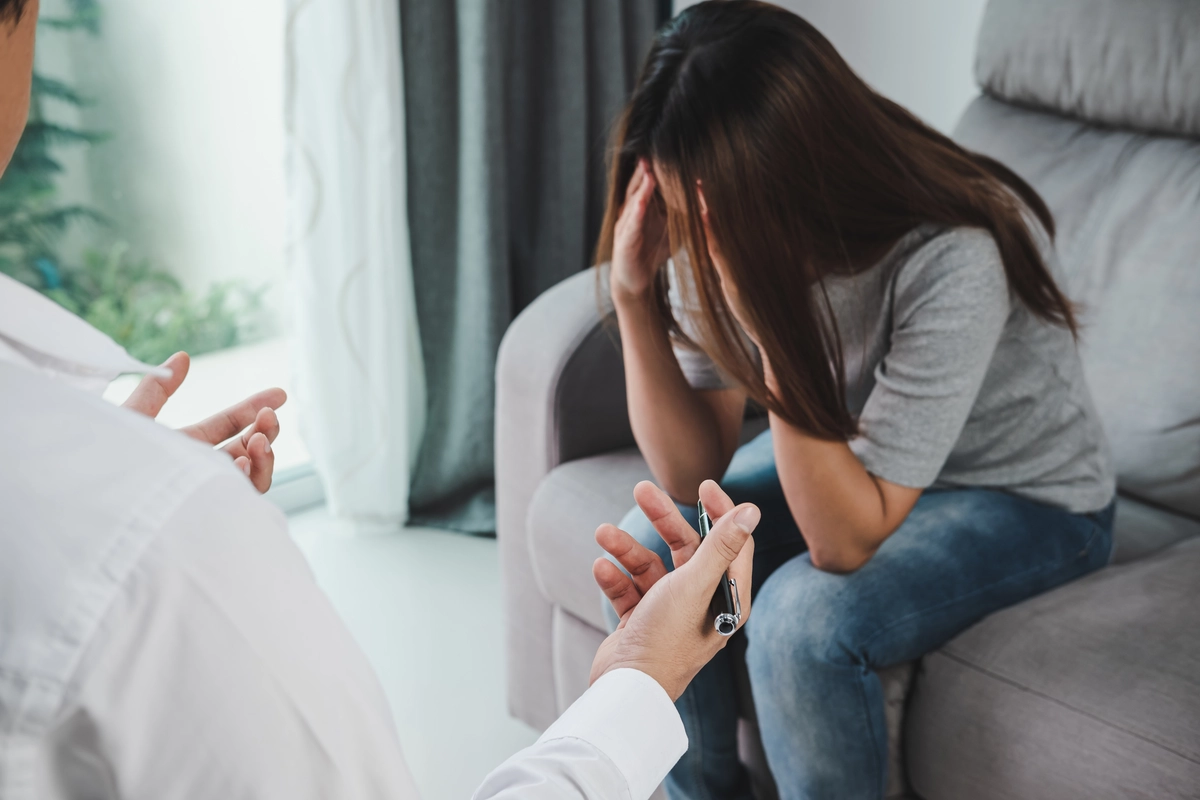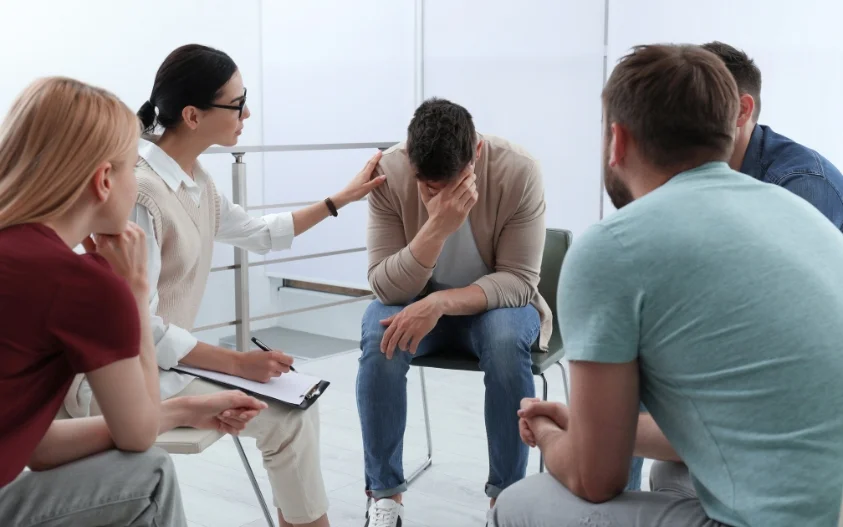24/7 Helpline:
(866) 899-111424/7 Helpline:
(866) 899-1114
Learn more about PTSD Rehab centers in El Cajon
PTSD Rehab in Other Cities

Other Insurance Options

State Farm

Cigna

Ambetter

Health Net

MVP Healthcare

Optum

Magellan

Health Partners

GEHA

Sutter

PHCS Network

Self-pay options

Kaiser Permanente

United Health Care

Medical Mutual of Ohio

BHS | Behavioral Health Systems

UMR

Excellus

Choice Care Network

Absolute Total Care

El Cajon Treatment Clinic
Located at Located at 234 N. Magnolia Avenue in El Cajon, California, the El Cajon Treatment Center/...

McAlister Institute for Treatment and Education – East County Adolescent Detox
McAlister Institute for Treatment and Education–East County Adolescent Detox is an inpatient addicti...

Sharp Mesa Vista – East County Outpatient
Sharp Mesa Vista Hospital offers outpatient services for individuals with mental health disorders an...

Volunteers of America Southwest – Veterans Service Center
Volunteers of America Southwest – Veterans Service Center is a private rehab located in El Cajon, Ca...

East County Mental Health
East County Mental Health is a public rehab located in El Cajon, California. East County Mental Heal...














Alano Club
Alano Club is a non-profit rehab located in El Cajon, California. Alano Club specializes in the trea...

Alcohol Drug and Criminal Justice Programs
Alcohol Drug and Criminal Justice Programs is a private rehab located in El Cajon, California. Alcoh...

MHS – East County Center for Change
MHS - East County Center for Change is the case management and treatment provider for San Diego’s Ea...

McAlister Institute – East Teen Recovery Center
McAlister Institute – East Teen Recovery Center is a non-profit rehab located in El Cajon, Californi...

East County Regional Recovery Center
At East County Regional Recovery Center, services include assessment, treatment planning, individual...

Union of Pan Asian Communities – El Cajon
Union of Pan Asian Communities - Lexington Avenue provides services to address mental health issues ...

Community Research Foundation
Community Research Foundation is a private rehab located in El Cajon, California. Community Research...












